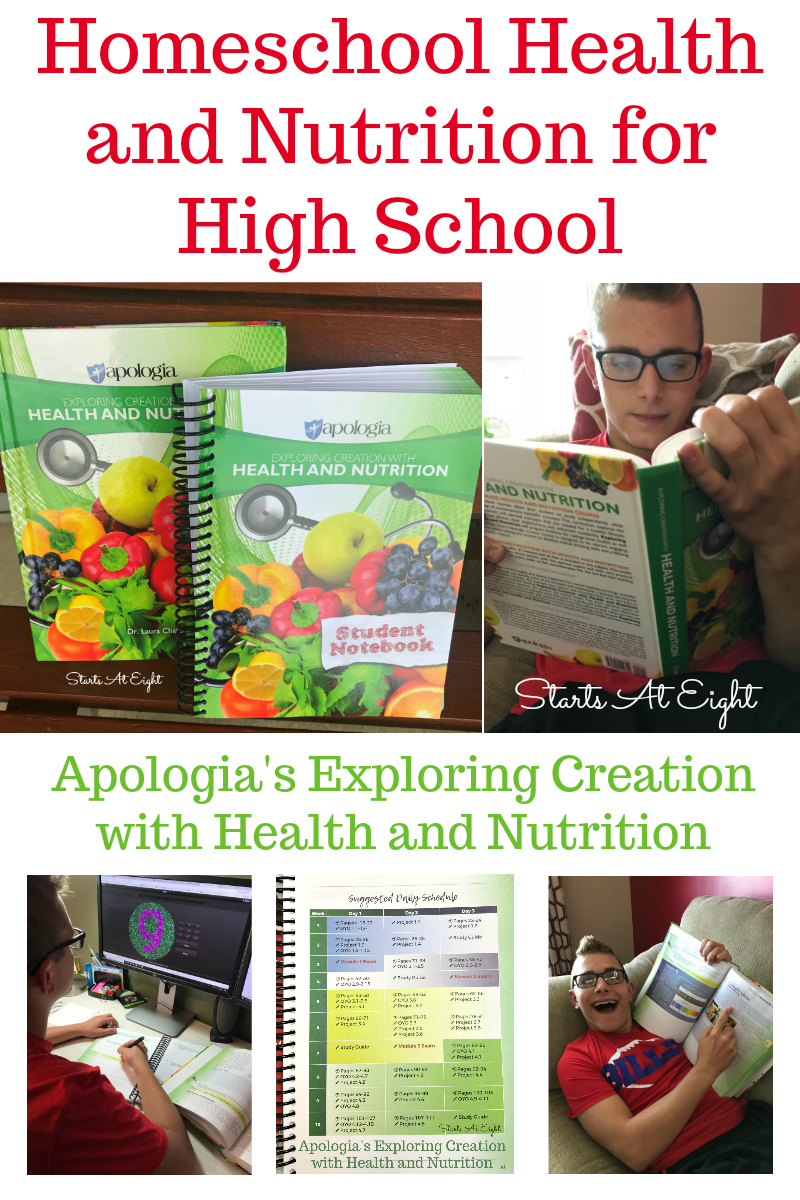Exploring Creation With Health And Nutrition

In an era defined by unprecedented access to information and a growing awareness of the intricate link between diet and well-being, individuals are increasingly seeking comprehensive resources to guide their health journeys. This quest for knowledge has fueled a surge in interest in holistic approaches to health education, with parents and educators alike searching for resources that not only impart nutritional information but also foster a deeper understanding of the body's complex systems.
At the forefront of this movement stands Apologia Educational Ministries, renowned for its science curricula from a creation-based perspective, which includes "Exploring Creation with Health and Nutrition." This curriculum aims to equip students with the knowledge and tools to make informed decisions about their health, grounding its lessons in scientific principles while integrating a specific worldview. Understanding the scientific underpinnings, key concepts, and the curriculum's position within broader discussions about health education is crucial.
The Foundation of the Curriculum
"Exploring Creation with Health and Nutrition" is designed for middle and high school students, offering a comprehensive overview of human anatomy, physiology, nutrition, and fitness. The course emphasizes a functional understanding of the body, exploring how different systems interact and how nutrition impacts overall health.
The curriculum covers a range of topics, including macronutrients, micronutrients, digestion, metabolism, and the role of exercise in maintaining a healthy body weight. It also addresses contemporary health issues such as obesity, eating disorders, and the impact of processed foods on the body.
Each module includes engaging activities, experiments, and real-world examples to help students apply their knowledge and develop critical thinking skills. Apologia utilizes a conversational, accessible writing style that makes complex topics easier to understand for young learners.
A Unique Approach to Health Education
What sets "Exploring Creation with Health and Nutrition" apart is its integration of a young-earth creationist perspective within the framework of scientific principles. This means that while the curriculum adheres to established scientific findings in areas like anatomy, physiology, and nutrition, it also presents a particular viewpoint on the origins of life and the natural world.
The curriculum presents a young-earth creationist viewpoint on subjects such as the origins of life, while still providing science-based information on nutrition and health. This approach distinguishes it from other curricula that may embrace different scientific or philosophical perspectives.
This unique blend has resonated with a specific segment of the homeschooling community seeking educational materials that align with their religious beliefs while providing a solid science education. However, it has also raised questions and discussions within the broader educational landscape.
Perspectives and Considerations
The inclusion of a creationist perspective in a science-based curriculum elicits diverse reactions. Supporters argue that it provides a cohesive worldview for students who share those beliefs, fostering a sense of intellectual integrity. This alignment, they say, helps students integrate their faith with their understanding of the world.
Critics, however, express concerns about the potential for scientific concepts to be misinterpreted or distorted to fit a pre-determined narrative. Dr. Emily Carter, a biology professor at a major university, states, "It's crucial that students learn to differentiate between scientific evidence and religious belief. A curriculum that blurs these lines can hinder their ability to think critically and evaluate information objectively."
The National Science Teaching Association (NSTA) emphasizes the importance of teaching evolution as a core scientific principle, stating that "science teachers should not advocate any religious interpretations of nature" and that "science and religion are separate and address different aspects of human understanding." This position reflects the prevailing consensus within the scientific community regarding the separation of science and religion in educational settings.
Navigating the Curriculum
Parents and educators considering "Exploring Creation with Health and Nutrition" should carefully evaluate the curriculum's content and approach. It's essential to understand the specific worldview that underpins the lessons and to consider how that perspective may influence students' understanding of scientific concepts.
One suggested approach is to supplement the curriculum with additional resources that present alternative scientific viewpoints, allowing students to engage with a broader range of perspectives. This can foster critical thinking skills and encourage students to evaluate evidence from multiple sources.
Dr. Sarah Jones, a homeschooling parent who uses Apologia's science curricula, emphasizes the importance of open dialogue. "We use Apologia as a starting point, but we also encourage our children to research different perspectives and to ask questions. It's about fostering a love of learning and a desire to understand the world around them."
The Future of Health Education
As interest in health and nutrition continues to grow, the demand for comprehensive and engaging educational resources will likely increase. Curricula like "Exploring Creation with Health and Nutrition" represent one approach to meeting this need, integrating scientific principles with a specific worldview.
The ongoing discussions surrounding the curriculum highlight the importance of considering diverse perspectives in health education. Parents, educators, and students must critically evaluate resources, engage in open dialogue, and strive for a balanced understanding of both scientific knowledge and philosophical viewpoints.
Ultimately, the goal of health education should be to empower individuals with the knowledge and skills to make informed decisions about their well-being, fostering a lifelong commitment to health and wellness. As health education advances, the key lies in the continuous evaluation and adjustment of curricula to suit the needs of students while maintaining scientific integrity and promoting critical thinking.


















